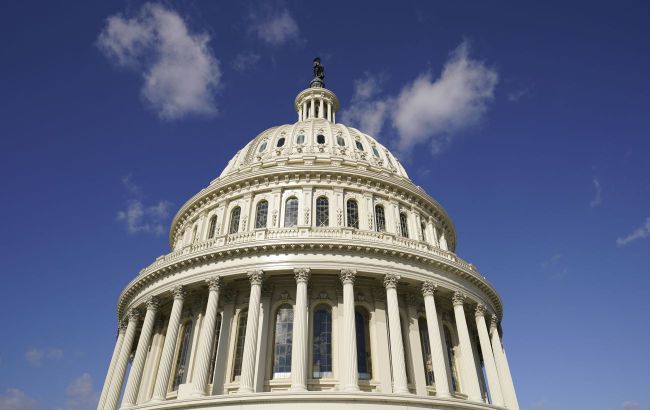White House warns of mass layoffs if government shutdown hits – CNN
 Photo: Trump administration prepares radical cuts due to budget crisis (Getty Images)
Photo: Trump administration prepares radical cuts due to budget crisis (Getty Images)
If funding is suspended due to the standoff between Democrats and Republicans, federal agencies will be forced to lay off civil servants en masse, CNN reports.
The Office of Management and Budget (OMB) has ordered federal agencies to prepare plans for mass layoffs in the event of a shutdown. Programs that are not required by law to continue will be subject to cuts.
The OMB memorandum is a sharp departure from previous practice and signals increased pressure from the Trump administration in its standoff with Democrats in Congress over funding.
The document orders the identification of programs that will be left without funding after September 30 if Congress does not pass a budget. If they do not have alternative funding, they will be targeted for large-scale cuts that could permanently eliminate jobs deemed incompatible with Trump's priorities.
"We remain hopeful that Democrats in Congress will not trigger a shutdown and the steps outlined above will not be necessary," the memo says.
Opposition reaction
Senate Democratic leader Chuck Schumer called the memo an attempt at intimidation.
"Donald Trump has been firing federal workers since day one—not to govern, but to scare," he says.
In his opinion, the dismissals will be overturned in court, or the employees will have to be reinstated.
The threat of massive job losses only exacerbates the conflict. Democrats are demanding concessions, including the extension of increased subsidies for Obamacare health insurance, which expire at the end of the year. The White House and Republicans insist on a clean extension of funding.
This week, Trump canceled a meeting with Democratic leaders, completely rejecting their demands. On Wednesday, the OMB once again confirmed the administration's position, calling the Democrats' proposals insane and emphasizing that even in the event of a shutdown, Trump's key priorities would be funded.
Plan for large-scale cuts
This move was a continuation of the Trump administration's policy of reducing the federal bureaucracy. In February, the US President signed an executive order requiring agencies to prepare plans for major cuts. The results were mixed. Some agencies laid off some of their staff, others refused, and some even asked employees to return.
Back in February, the OMB and the Office of Personnel Management sent another memo ordering the identification of all employees whose functions are not required by law and who are not considered critical during a shutdown.
Unusually, this time the OMB has not yet published the agencies' shutdown plans on its website, even though the funding deadline is less than a week away. The document states that many, but not all, agencies have already submitted updated plans. These plans identify which functions and employees are considered essential and will continue to work, but often without pay until the budget is approved.
Consequences of previous shutdowns
Previous shutdowns had various consequences: national parks and museums were closed, food inspections were suspended, immigration hearings were canceled, and the issuance of loans to businesses and households was delayed. At the same time, key services—Social Security payments, police work, air traffic control, and border patrol—continued.
Trade union position and criticism
Civil service unions said they had no information about this memorandum. The National Treasury Employees Union and the American Federation of Government Employees have not yet commented.
Representatives of center-left organizations criticized the intention to use the shutdown to reduce the bureaucracy.
Earlier, Trump said that the work of the US government could be suspended for a certain period of time due to the inability of Republicans and Democrats to pass a funding bill.
At the end of December, Mike Johnson introduced a temporary budget bill to Congress that would have provided funding for the government until mid-March 2025.
However, Donald Trump and Elon Musk blocked the bill's passage.
On the second attempt, the House of Representatives and the Senate passed a bill for temporary government funding until March 14, 2025.
In March, the threat of a shutdown loomed over the US again, but thanks to the efforts of Republicans and Trump, government funding was extended until September.

